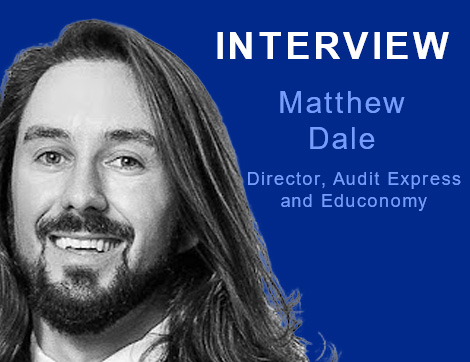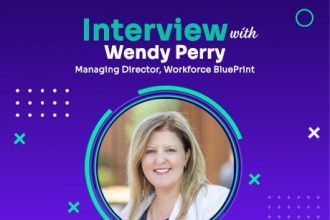 With more than a decade experience working across the VET Sector, Matthew brings a wealth of skills, knowledge and experience to Audit Express & Educonomy. Matthew has had extensive experience in managing the quality & compliance of various state funding contracts and in leading RTOs through the complex process of re-registration. Matthew’s passion is with ensuring that training organisations can adapt to change and ensure the continuing quality of training while also ensuring compliance with the relevant contracts and standards.
With more than a decade experience working across the VET Sector, Matthew brings a wealth of skills, knowledge and experience to Audit Express & Educonomy. Matthew has had extensive experience in managing the quality & compliance of various state funding contracts and in leading RTOs through the complex process of re-registration. Matthew’s passion is with ensuring that training organisations can adapt to change and ensure the continuing quality of training while also ensuring compliance with the relevant contracts and standards.
Sukh Sandhu: What are the primary challenges and core issues of operating in the VET sector?
Matthew Dale: The VET sector is currently at a real crossroad and is facing numerous challenges and issues. The key challenges being faced by most RTOs is the volume and pace of changes to training packages, which is providing to costly and time consuming for RTOs to adapt to. The relevance and responsiveness of training packages to the needs of industry is also posing a real issue, this is particularly the case as we enter into the post-covid economic recovery. Many industries and sectors are unable to commit to enrolling their workforce into full qualifications to meet the training needs of their organisations, and many are shifting away from traditional accredited training solutions, opting for more innovative and agile non-accredited training solutions, including micro-credentials. For more information on micro-credentials, be sure to check out the educonomy micro-credential and digital badging virtual summit.
Sukh Sandhu: You are one of the very few quality RTO and VET consultants with extensive vocational education and training sector knowledge and skills, according to you, what are the five skills that a significant number of consultants in the VET sector lack and what RTO clients should be careful about?
Matthew Dale: That’s a big call and is very kind of you to say. In my experience, the RTO and VET consultants that I have encountered, each have their area of specialist knowledge and expertise. I’m not sure that I could narrow it down to five skills that RTO clients should be careful about, rather what I would note is that consultants should be clear on what their area of expertise is, and they should work to their strengths, rather than seeking to be a ‘jack of all trades, and master of none’, that they work to their strengths and that RTO clients are really clear when engaging the services of a consultant, that they are really clear on the scope of work they are wanting to be completed and that they recruit suitably qualified and experienced consultants accordingly. It is also a really good idea to always seek professional references before making the decision to engage a consultant.
Sukh Sandhu: You’re involved in a variety of activities in the online and training education space; so perhaps you could discuss a few of them for our subscribers?
Matthew Dale: For a number of years now, we have been supporting our clients to shift their traditional classroom and workplace-based training programs to blended and online delivery modes, which are supported by engaging online content. In 2018 we expanded our work in this space with the launch of Educonomy, a consultancy firm with a big vision of positioning Australia as a global EdTech leader by transforming the current economy of learning and ensuring that every learner is recognised for their skills, regardless of how or where learning takes place. Our team have spent the past 5 years researching global trends in education. We have observed a pattern and trends across the globe as institutions step away from traditional education systems & opt for newer, more innovative options for learning, including micro-learning & micro-credentials. At Educonomy, we drive the future of education by transforming the way we learn. Combining strategy, latest EdTech and expertise, we help education providers to shift into the future and meet the needs of tomorrow. For more information on creating engaging learning content, be sure to check out the educonomy digital learning virtual summit.
Sukh Sandhu: What, in your opinion, are the key distinctions between a quality training provider and a poor quality training provider?
Matthew Dale: Put simply, the key distinctions that set aside quality training providers from the rest are a genuine commitment to the following points:
- Learner experience
- Learner support
- Maintaining a strong connection and links to industry
- Establishing and maintaining strong governance processes and quality controls, that drive the quality of learning and assessment content
- Continuously reviewing the products offered, seeking genuine feedback and input from learners, trainers, assessors, management and external stakeholders, including employers
Sukh Sandhu: What, in your opinion, is effective or ineffective in the current regulatory environment?
Matthew Dale: The VET regulators (ASQA, VRQA & TAC) seem to have turned a new page and all seem to be taking a more reasonable and consultative approach to the way in which they have regulated over the past five years, which is great! I tend to look on the positive side and do what I can to effect change where I can, rather than focussing on that which is outside of my control.
Sukh Sandhu: What message would you like to send to training providers who operate in a regulated environment?
Matthew Dale: Focus on what you are good at, know your niche and stick to it. Commit to improving the quality of your learning content and user experience in the areas that you specialise in, and stick to that. Rather than trying to be everything to everyone, just focus on the areas that you want to succeed in and focus on being the best in the market in that! 2022 is the year for refocussing and consolidation, make it a year worth remembering.
Matthew Dale can be contacted through the LinkedIn profile. https://www.linkedin.com/in/matthew-dale







